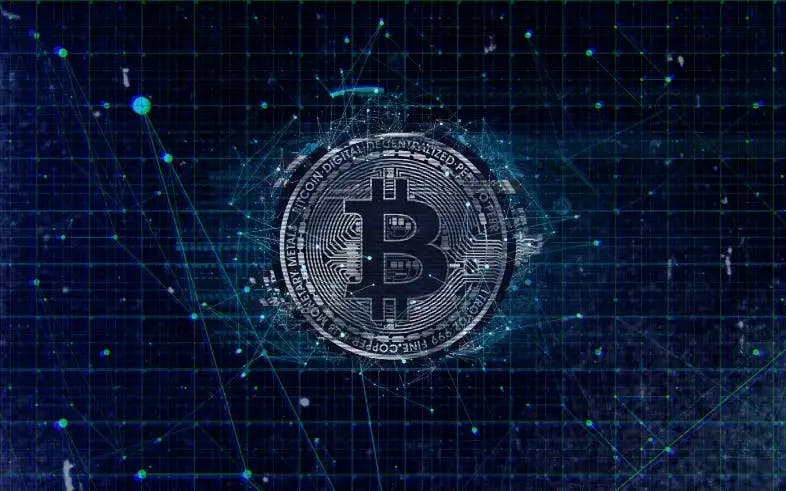Slightly Unrelated: A Case for Bitcoin (Part 2 of 3)
 This is part two of my paper on Bitcoin. If it seems like the paper abruptly starts, it’s because you didn't read part 1.
This is part two of my paper on Bitcoin. If it seems like the paper abruptly starts, it’s because you didn't read part 1.
Bitcoin: The Decentralized Solution to Traditional Currencies
…The inaccessibility of traditional, centralized currencies leaves millions of geographically and economically disadvantaged people unbanked (The World Bank, 2017). Bitcoin, as a digital and decentralized currency, can help these unbanked people manage their money. In their 2017 Global Findex Database, the World Bank reported that 1.7 billion people did not have access to a financial institution. Of these 1.7 billion people, 22% reported that financial institutions are simply out of their reach physically, while 26% also cited cost as their primary barrier (The World Bank, 2017, p. 40). Unlike traditional currencies, Bitcoin only requires a mobile device and an internet connection, both of which are becoming easier to acquire. The Cisco 10th Annual CISCO Visual Networking Index (VNI) predicted that there will be more people with mobile phones than access to running water by 2020 and that Wi-Fi offload traffic will continue to pass projected estimates (30.6 exabytes). Physical Bitcoin ATMs are also making it much easier for people to exchange their cash for bitcoins in real-time. On September 16, 2020, the number of Bitcoin ATMs hit 10,000 worldwide (Hamacher, 2020, para. 1). Many large businesses are also accepting bitcoins as a form of payment, such as Expedia, Overstock, Newegg, and the Dish Network (Andersson & Wegdell, 2014, p. 13), making Bitcoin even more accessible and practical as a payment method.
Bitcoin is a safer and more reliable alternative to the trust-based model large banks use. Many centralized banks have facilitated nefarious acts. Standard Chartered, JP Morgan, Bank of New York Mellon, and Deutsche Bank all have ties to very suspicious groups and activities. For instance, Standard Chartered has reportedly moved money for a company in Dubai that is tied to the Taliban and JP Morgan has helped move over $150 million on the behalf of companies tied to the North Korean regime. These centralized banks file such an exorbitant number of suspicious activity reports (to the tune of around 640,000 reports a year), that accountability bureaus like FinCEN struggle to keep up. Bitcoin, on the other hand, can prevent money laundering better than traditional currencies (Schieber & Flitter, 2020). An investigation into money laundering becomes much more feasible since Bitcoin’s blockchain precisely records every chain of transactions (Böhme et al., 2015). Centralized banks are also subject to poor financial decisions made by governments. For example, in 2013, the Cypriote government instituted bail-ins for banks, where investors and consumers take some of the financial burden in saving the bank from collapsing. Imposing this policy led the people of Cyprus to begin using Bitcoin instead of traditional banks (Andersson & Wegdell, 2014, p. 16). Unlike traditional currencies, Bitcoin is not subject to government rules and regulations since Bitcoin is not governed by a central authority and is not routed through one. Instead, majority decisions by nodes in the server and mathematical principles govern how one can mine bitcoin and the legitimacy of transactions.
Centralized currencies facilitate nefarious deeds like money laundering and allow businesses and individuals to evade taxes. Bitcoin’s use of a public timestamp server can help prevent these nefarious deeds. In the year 2001 alone, the Internal Revenue Services determined that the tax gap in the United States was $345 billion, 17% of all taxes owed. Over 80% of this gap is attributed to underreporting (Slattery, 2014, p. 858). Kenneth Rogoff, professor of Economics at Harvard University, makes the case against the use of traditional currencies. Paper currency “facilitates making transactions anonymous” which helps “conceal activities from the government” to “avoid laws, regulations, and taxes” (Rogoff, 2015, 447). Tax evasion in traditional currencies takes the form of underreported cash tips, not depositing cash, and other methods of creating a parallel cash economy. These methods of tax evasion arise because of the self-reporting nature of traditional currencies (Slattery, 2014, p. 859). The accountability issues with traditional currencies echos in the case of Bitcoin, whose anonymity makes it difficult to reliably collect taxes. However, the United States has begun to utilize the publicity of the timestamped ledger to collect taxes. The Bank Secrecy Act (BSA) allows the United States to spread its jurisdiction on transactions using bitcoins. If businesses and individuals have their money stored in a Bitcoin account, the government can track the history of each bitcoin using the public timestamped ledger. If authorities observe suspicious activity, the BSA allows them to order Internet providers to disclose information about the identity of that account (Slattery, 2014, p. 867). This would dramatically lower the feasibility of illegal Bitcoin practices.
Look out for part 3!
If you enjoyed reading this, consider following/clapping. It helps a lot!
- ADA Crunch